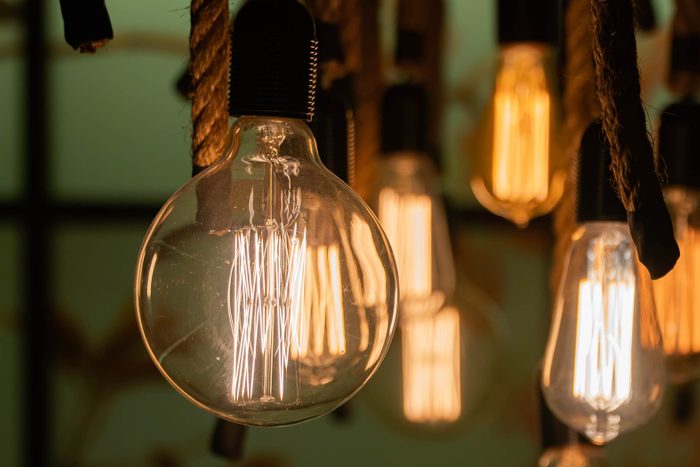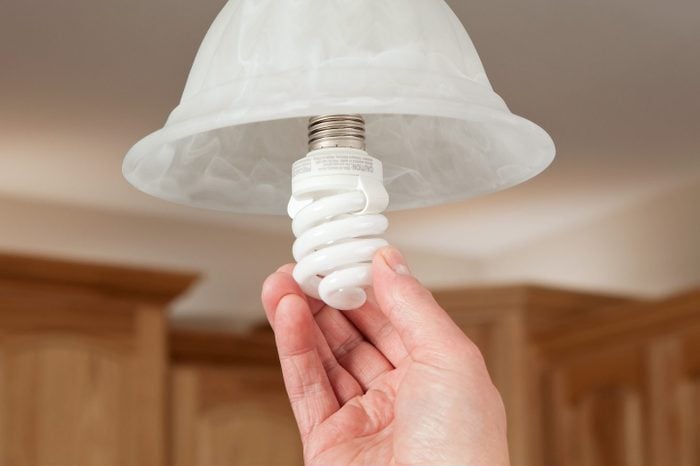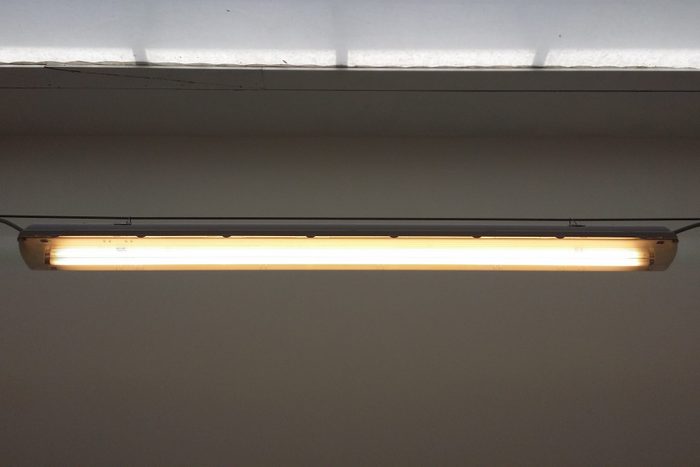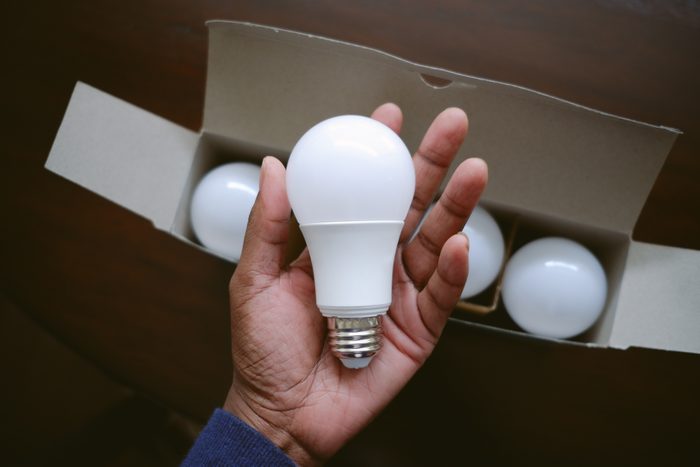Incandescent Light Bulbs
Incandescent lights, which feature a wire filament encased in a glass bulb, were once the standard in most homes. But because they’ve got a short life span and aren’t energy efficient, incandescent light bulbs have been widely replaced by CFL and LED bulbs.
The materials used to make incandescent bulbs can be recycled. However, because it’s so easy to break and difficult to separate the metal and glass, most recycling services won’t accept them. It’s just not worth their time. They’re safe to throw in your trash and can be upcycled, too.
If you have old incandescent bulbs to recycle, check local specialized or mail-in services.
CFL Light Bulbs
Compact fluorescent lights are popular because they use less energy than incandescent bulbs; they’re easily identified by their winding glass tubes. However, they contain mercury, a toxic metal that can contaminate air and water. Because mercury can leach into the soil and the groundwater, you should never dispose of them in your household trash.
Some home stores, including Lowe’s and The Home Depot, recycle CFL bulbs as long as they’re intact. Mail-in services and specialty recycling services also accept CFL bulbs.
If you do break a CFL bulb, take a few precautions for cleaning it up. Open a window, turn off the HVAC system and get everyone (including pets) out of the room for 15 minutes. From there, follow Environmental Protection Agency (EPA) guidelines for cleaning up the mess.
Fluorescent Light Bulbs
Like CFL bulbs, fluorescent light bulbs — those long glass tubes — also contain mercury and require careful handling when replacing. Some home centers offer recycling services for these bulbs, too. Check online or give your local retailer a call before heading over there.
Local waste collectors have different rules for recycling and disposing of fluorescent bulbs, so be sure to check with whoever picks up your trash and recycling first.
LED Light Bulbs
You probably haven’t thought about throwing away or recycling LED lights too often. They can last five times longer than CFL bulbs and 30 times longer than incandescent lights. They’re also much easier to recycle since they contain no mercury or hazardous chemicals.
LED lights contain a microchip, so some electronics recycling services will accept them, as well as some retailers. As usual, check with your regular curbside recycling provider to see if you can put them in your bin. If not, they may have a drop-off location for those products.
Halogen Light Bulbs
Like incandescent bulbs, halogen bulbs contain wire filaments sealed in glass. But the glass is much thicker and there’s halogen gas sealed in the bulb.
They can’t be recycled because the glass contains quartz, which melts at a different temperature than standard glass. Check with your disposal company to see if they provide options for recycling halogen bulbs. There are additional recycling services for halogen bulbs, too, including some retailers.
Holiday Lights
Tastes change. It’s perfectly fine to change your mind about those St. Patrick’s Day lights that seemed like such a great idea two years ago. But whether you’re giving up on past light purchases or disposing of strands of Christmas lights that don’t work anymore, you don’t have to trash them.
Holiday lights feature different types of bulbs, from incandescent to LEDs, that will determine how to recycle them. Your local waste collection service might offer a recycling program for unwanted or broken holiday lights. Specialty electronics recycling services sometimes accept holiday lights, too.
Home centers like The Home Depot or Lowe’s sometimes offer recycling services for holiday lights, too. Companies that sell lights online, like Christmas Light Source or Holiday LEDS, also offer recycling services.






